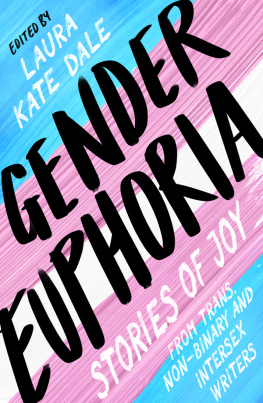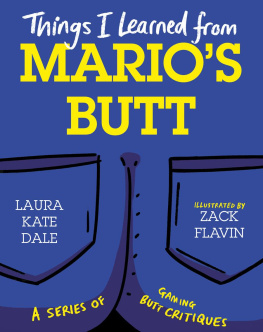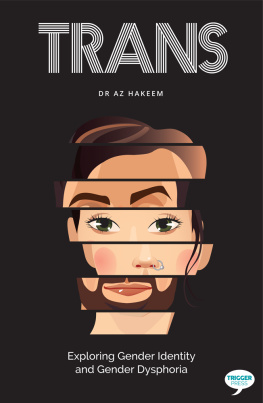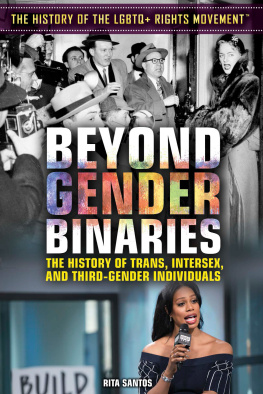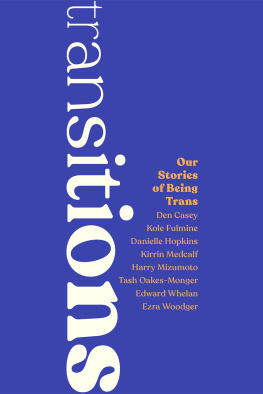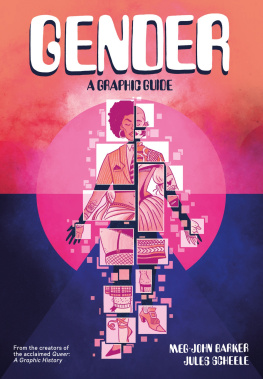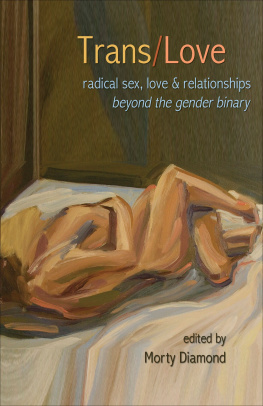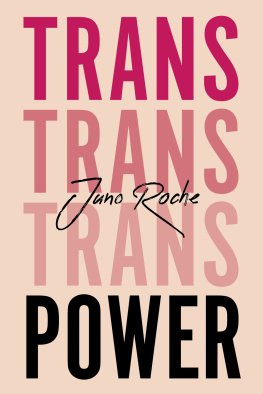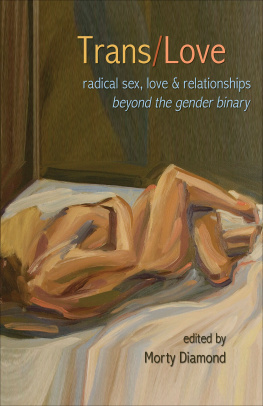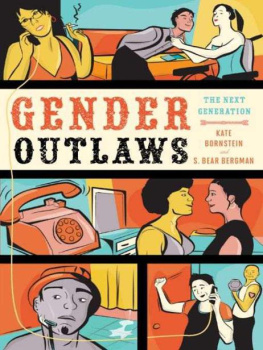
Contents
Introduction
So often, when we see pop-culture portrayals of trans and non-cisgender peoples lives, hear stories shared by trans people about their transitions, or accounts by the media about trans people and their transitions, those stories focus on misery and discomfort.
It makes sense why this happens. For many transgender people, a big part of what initially pushes us to realise we need to come out is experiencing gender dysphoria, an unpleasant feeling of disconnect between our gender assigned at birth, and our own knowledge of our lived experience. Maybe you hit puberty and start growing facial hair, or your voice drops, or you start growing breasts, and suddenly you feel uncomfortable, like the changes happening to your body are alien, are transforming you into someone you dont want to be. All those quietly held thoughts about not being your birth-assigned gender you might have grown up with suddenly have a focal point: your body is changing and you dont like what its becoming.
Not every trans person experiences dysphoria, and its certainly not required to be valid as a trans person, but theres a reason it gets talked about so often, and it is used as part of diagnostic criteria. Its quite often what kicks a person from spending years thinking, It sure would be nice to be a different gender from the one I was assigned at birth , into actually deciding to make a change in who they want to live as. Gender dysphoria is a catalyst: it lights a fire under many and underscores the aspects of themselves theyre unhappy living with.
Trans people all around the world today, to greater or lesser degrees, are still fighting for legal recognition of their gender status, legal protections, rights and safety. When it comes to explaining why you need the right to live the way you do, that you feel uncomfortable with yourself, that you need to alleviate a pain deeply lodged in you, thats easy to explain quickly and simply. Everyone has been hurt emotionally in their lives, and its easy to understand why you would want to take steps to avoid that discomfort.
Beyond that, even, the media plays a part in that framing of the trans narrative. If you want people to feel sympathy for the trans community, explain were escaping dysphoria. If you want to demonise the community, tell people our dysphoria is a delusion and shouldnt be indulged. It can be spun differently depending on whos trying to spin it, which makes it a powerful aspect of the way trans stories are so often portrayed.
I know I, as a trans person, fall into this trap sometimes when discussing my own transition. When I wrote my memoir a few years ago, sure, it touched on some positives and joyful moments, but that certainly wasnt the focus. I wrote a lot about not fitting in growing up, about struggling to be accepted when I came out, and I wrote about the challenges I am facing in the world today. It made sense to share those parts of my story with the world, but it also got me thinking about how prevalent that narrative can be when discussing trans stories.
Over the couple of years since then, I have thought a lot about the importance of celebrating the fact that stories of transition are not all just about doom and gloom, as much as it may sometimes feel that way. Ive experienced countless moments of elation, pride, confidence, freedom and ecstasy as a direct result of my coming out as a trans woman the better part of a decade ago, and I know I am not alone. When I talk to my trans, non-binary, agender, gender-fluid and intersex friends, I have heard countless wonderful stories about the ways that coming to terms with gender brought unimaginable happiness and love into their lives.
When I said earlier that gender dysphoria isnt a required part of being trans, I meant it. When I say that, sometimes people ask me how someone would know they were trans, if not for feeling uncomfortable with their body and the way they were born. And to that, I say the answer is simple. If you try presenting yourself as something other than your birth-assigned gender, and it makes you feel euphoric, thats just as valid a reason to claim your identity as escaping dysphoria. Gender euphoria is an equally valid reason to decide who you are.
Im not going to pretend that the world isnt sometimes a bit miserable for non-cisgender people. Im not going to pretend a lot of us didnt have a rough road to get where we are now. But, this book isnt about that. This book is about gender euphoria. This book is about people doing small actions and grand gestures that made them feel radiantly themselves and wonderfully at peace. This book is about stories of transition as euphoria.
So, before we go any further, who am I? Well, my name is Laura Kate Dale. I am a twenty-nine-year-old pansexual trans woman author of three books, full-time video-game critic and podcaster. Of the essays contained in this anthology, I wrote around one third of them, with the rest being written by a wonderful list of contributing authors.
Over the next 70,000 words or so, youll read several essays about my own experiences with gender euphoria throughout the past decade, but youll also read essays from a vast array of non-cisgender writers of different orientations and backgrounds, and with a varied selection of experiences to share. Every author hand-picked to contribute an essay to this anthology was selected above hundreds of other writers because I felt they had a uniquely joyful story to tell and was excited to help them tell that story to the world. From an agender dominatrix getting called Daddy, to an Arab trans man getting his first tattoos in spite of cultural taboo, a non-binary intersex writer not having to choose between puberties and a trans woman embracing her inner fighter, this book will take you on a journey through how coming to terms with who you are can be about more than avoiding someone you dont want to be.
So, thank you for picking up this book. I hope you feel as overjoyed reading it as I felt having the privilege to put it together.
Laura Kate Dale, 2020
Becoming Prom King: How My Classmates Showed Their Support for My Transition
Oliver Jones
Eighteen, a transgender man from England
Trans people can often get swept up into the mindset that until you have completed your transition (socially, medically, legally), your life is on hold. You are forever waiting for things to fall into place.
I came out as a trans boy to my family and peers at school when I was thirteen years old.
A few months before, my teachers were so concerned about my behaviour at school that they recommended I see the on-site counsellor. I was refusing to take part in class, getting into fights with other kids, having screaming matches with my teachers. I hated everything and I didnt care if my grades dropped or I got kicked out. Something was wrong, but I couldnt pinpoint what it was. I just felt angry with the world.
I explained this to the school therapist. I did not expect her to tell me she suspected I might have gender dysphoria. I had no idea what being that meant. But when it was explained to me, I knew I fit the description.
I was the textbook trans guy. I refused to wear dresses. I begged my mum to let me have short hair and buy clothes from the boys section. I only played with the boys at school, and I wanted nothing to do with the girls. I spent my free time playing video games, football, skateboarding and running around outside. When my poor behaviour at school was called out by teachers and counsellors, I told them I wished I was a boy. That was the only explanation I could give. In hindsight, that was a pretty big clue as to what was going on.

